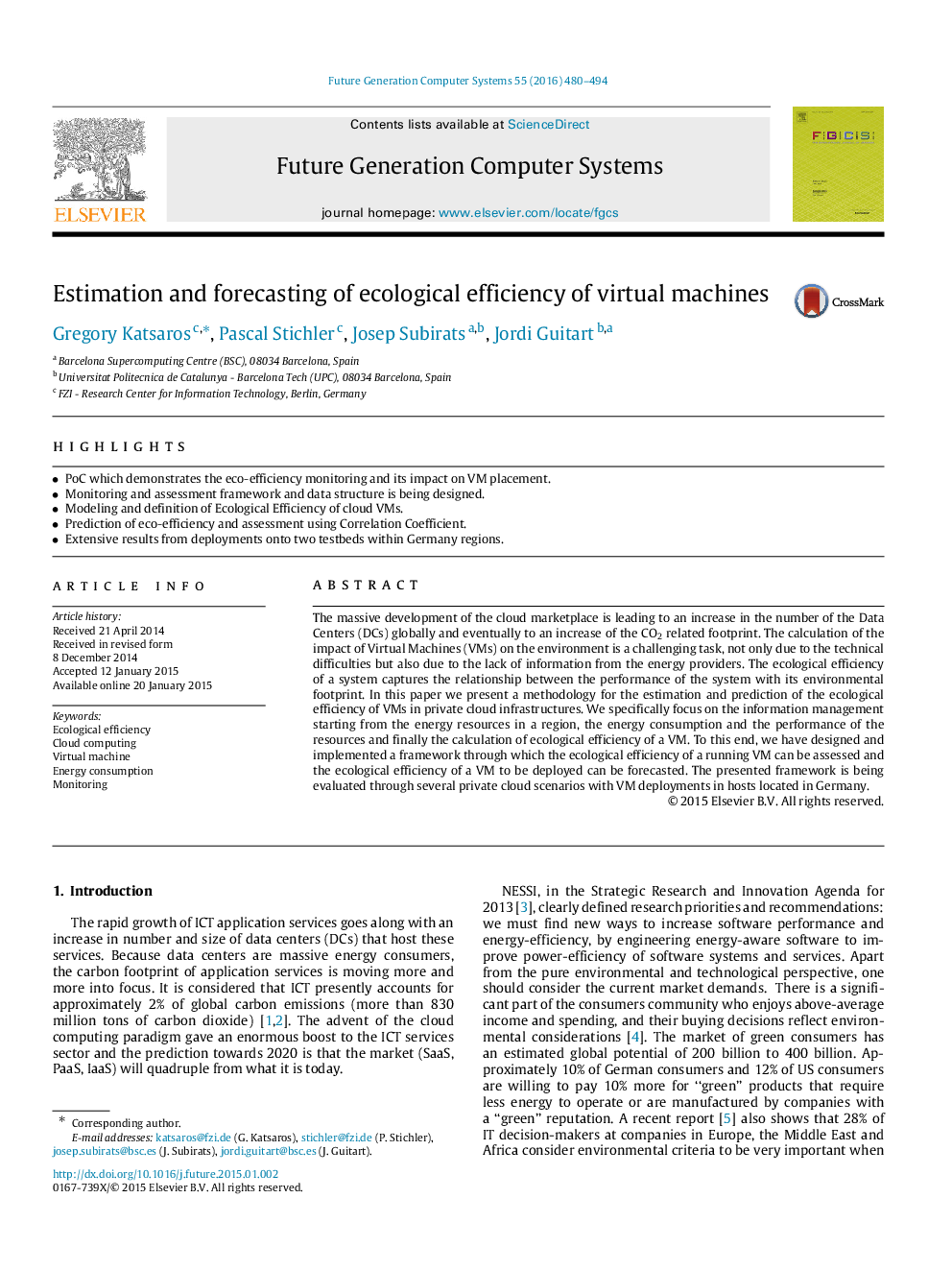| Article ID | Journal | Published Year | Pages | File Type |
|---|---|---|---|---|
| 425593 | Future Generation Computer Systems | 2016 | 15 Pages |
•PoC which demonstrates the eco-efficiency monitoring and its impact on VM placement.•Monitoring and assessment framework and data structure is being designed.•Modeling and definition of Ecological Efficiency of cloud VMs.•Prediction of eco-efficiency and assessment using Correlation Coefficient.•Extensive results from deployments onto two testbeds within Germany regions.
The massive development of the cloud marketplace is leading to an increase in the number of the Data Centers (DCs) globally and eventually to an increase of the CO22 related footprint. The calculation of the impact of Virtual Machines (VMs) on the environment is a challenging task, not only due to the technical difficulties but also due to the lack of information from the energy providers. The ecological efficiency of a system captures the relationship between the performance of the system with its environmental footprint. In this paper we present a methodology for the estimation and prediction of the ecological efficiency of VMs in private cloud infrastructures. We specifically focus on the information management starting from the energy resources in a region, the energy consumption and the performance of the resources and finally the calculation of ecological efficiency of a VM. To this end, we have designed and implemented a framework through which the ecological efficiency of a running VM can be assessed and the ecological efficiency of a VM to be deployed can be forecasted. The presented framework is being evaluated through several private cloud scenarios with VM deployments in hosts located in Germany.
